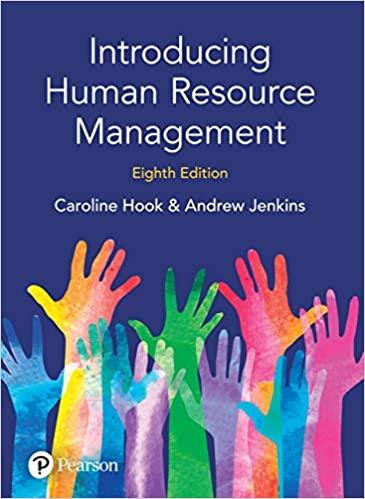It feels good to be on the right side of history. With employment recovering faster in Britain
Question:
It feels good to be on the right side of history. With employment recovering faster in Britain than its neighbours after the crash, governments for years seemed sure that the flexible labour market was one thing the country had got right. By 2015, Yorkshire alone was creating more jobs than the whole of France. The UK was also at the forefront of insurgent industries like the gig economy. George Osborne, as chancellor, promised to support these developments:
“We choose the future,” he declared.
In the eight years I have spent reporting on the economy, the people I met who most often disagreed with that analysis were the ones the “future” was happening to. Now, discontent about the quality of work in modern Britain—amplified by the Brexit vote—has spread from the country’s factories, call centres and care homes into the halls of power.
Justin Welby, the Archbishop of Canterbury, has called the gig economy “evil”. A commission established by a leftwing think-tank has called for a once-in-a-generation reform of the economy to restore “prosperity and economic justice”. John McDonnell, Labour’s shadow chancellor, has promised a vast expansion of workers’ rights. Conservatives, too, including the Prime Minister Theresa May, worry that some workers feel abandoned. Britain is having a crisis of confidence in its economic model. If this is the future, we’re not sure we like it after all.
But the future is not the problem—the problem is that a chunk of our economy has been retreating into the past. You need only look as far as Cambridge to see that the UK has cutting edge technology and science hubs as well as some of the best universities in the world. In cities from Leeds to Manchester and London, the economy has been churning out good jobs in professional services and the creative industries.
Meanwhile, in the low-paid economy that sits alongside—
and often services—the higher-paid workforce, new technology has enabled the return of some very old ways of working. The courier companies that shuttle documents between London’s banks and law firms, for example, disperse the work available to couriers who they pay on a piece rate.
“It drives you crazy,” one bicycle courier told me.
“You always want to be doing 20 or 30 deliveries, minimum. If it’s five o’clock or six o’clock and you haven’t reached that, you’re going to have to work extra hard another day. But it doesn’t really matter how hard you work, because it’s up to someone else how many jobs........
Questions 1. In what ways has the flexible labour market been useful?
2. In what ways has the flexible labour market caused problems in the UK?
3. Why is the UK’s low-paid sector less productive on average than the same sectors in Belgium, France, Germany or the Netherlands?
4. In your view, what changes would need to be made to ensure that jobs in the gig economy are fit for the twenty-first century?
5. In Chapter 1 we outlined some of the dimensions that the CIPD (2018g) says are important dimensions for a quality job. In your view, to what extent do the jobs of workers in the gig economy, or those who are on zero hours contracts, rate against these dimensions for a quality job?
Step by Step Answer:

Introducing Human Resource Management
ISBN: 9781292230344
8th Edition
Authors: Caroline Hook, Andrew Jenkins





